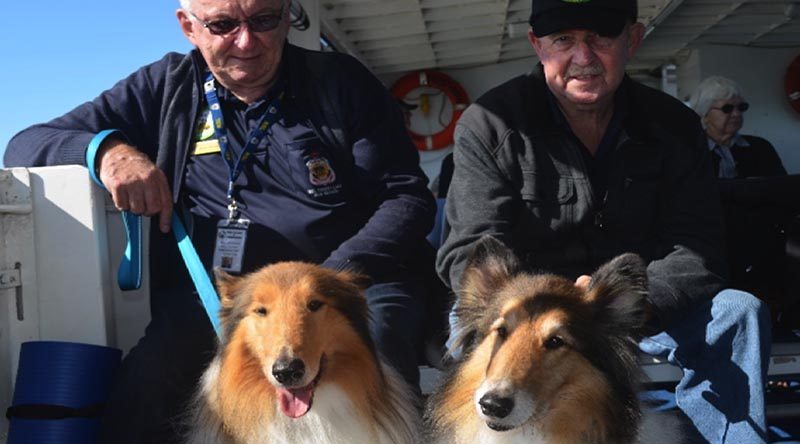Two new providers of PTSD dogs

Veterans with PTSD will benefit from the addition of two new providers to the Psychiatric Assistance Dog Program – the Royal Society for the Blind of South Australia and Integra Service Dogs Australia.
FILE PHOTO: A couple of Aussie veterans with their service dogs.
Minister for Veterans’ Affairs Darren Chester said this was an important program to help veterans manage their PTSD and the feedback received so far from veterans and their families was that it was making an amazing difference.
“We have seen the positive outcomes from this program with six veterans already sharing a special bond with their psychiatric assistance dogs, making a remarkable difference to their everyday lives,” Mr Chester said.
“These dogs are specially trained to perform specific tasks to help their owner when experiencing symptoms of PTSD, such as a night terror, and helping veterans to reach their clinical-recovery goals.
“Adding two new providers will increase the availability of psychiatric assistance dogs and ensure the growing demand from eligible veterans can be met.
“I encourage veterans managing their PTSD and who are interested in this program to contact the Department of Veterans’ Affairs to check the eligibility requirements and to apply to get an assistance dog.”
Mr Chester said more than 140 applications for psychiatric assistance dogs have been received by the Department of Veterans’ Affairs and having two new providers, along with two existing ones, will ensure the program can better support veterans across the nation.
To be eligible for a psychiatric assistance dog, veterans must have a Veteran Gold or White Card, have a diagnosis of PTSD from a psychiatrist and be currently engaged in treatment with their mental-health professional for a minimum of three months.
DVA is continuing to evaluate the effectiveness of psychiatric assistance dogs in the treatment of PTSD through a partnership with La Trobe University, with early feedback from veterans who have trialled the dogs being overwhelmingly positive.
“The current arrangements to source and train psychiatric assistance dogs allows DVA to address the needs veterans are experiencing now, while the La Trobe University research continues to better understand how psychiatric assistance dogs can support the treatment of PTSD for our veterans,” Mr Chester said.
For more information about DVA’s Psychiatric Assistance Dog program visit the DVA website.
.
.
.
.
.
.

.
.





